Following these experiences, he made his way back to the IT sector and initiated the TrustMe project, a trust-based ecosystem featuring a range of products. The most renowned among them is TrustContract, an online service for contract signing via SMS. During an interview with Digital Business and Astana Hub for “100 Startup Stories of Kazakhstan”, Chingiz shared insights about his prior work in the Ministry of National Economy of Kazakhstan, the rationale behind declining some lucrative business opportunities in favor of IT, and his vision for TrustContract to become Central Asia’s first unicorn.
“During my time as a student, I was making several thousand dollars each month”
– You began your entrepreneurial journey while still in school. What activities were you engaged in at that time?
– In the early 2000s, I used to record music on CDs. Back then, computers and Internet access were scarce. My father purchased a PC to work on his doctoral thesis and I began downloading music from different websites, which I then burned onto CD-RWs and sold for 250 tenge each. The demand was significant.
– Was your choice to initiate a business during your university years intentional?
– It was more a series of circumstances. When I relocated from Kyzylorda to Almaty, my parents purchased a car for me. One day, my uncle requested that I go to the market to purchase some building materials. This continued to happen repeatedly, and that’s how it all began.
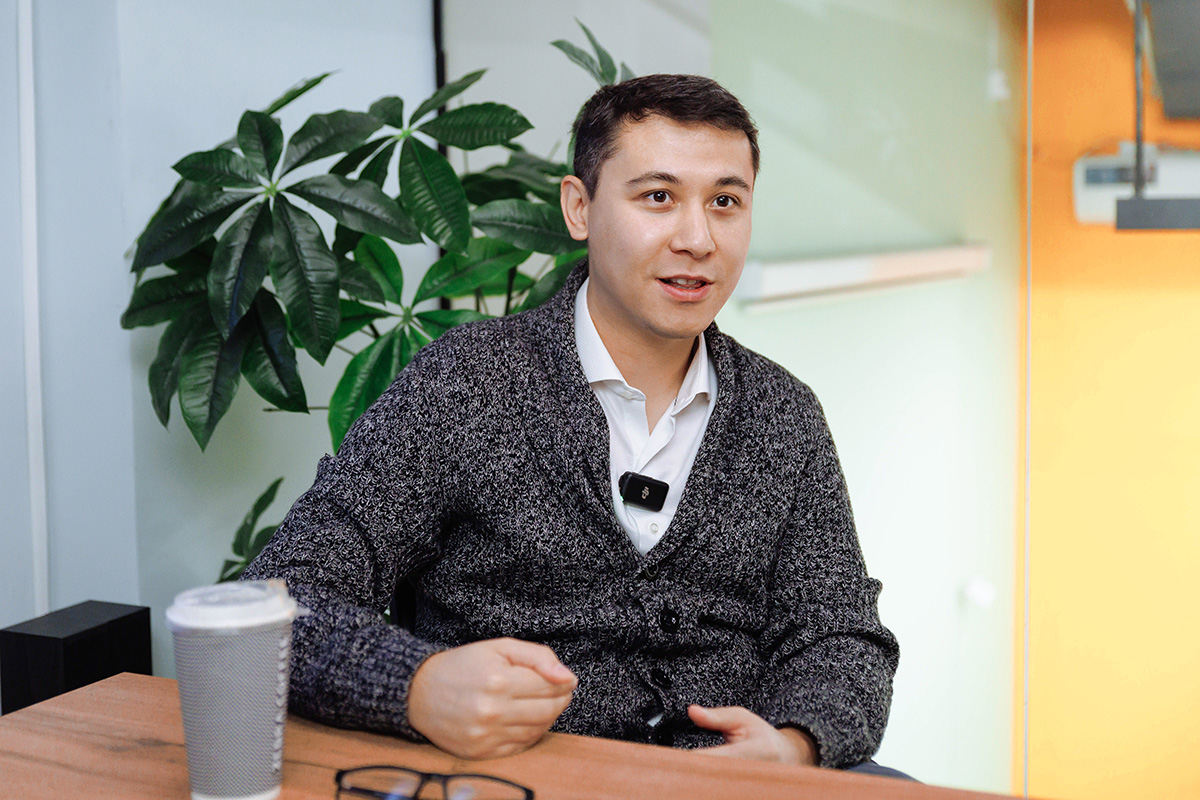
Consequently, I assumed responsibility for supplying linoleum, wallpapers, sports equipment, interactive boards, school boards, and more. While still a student, I managed transactions worth several million dollars per year.
– How much were you earning during that period?
– It varied based on my efficiency. The arrangement I had with my uncle operated as follows: he supplied me with a list of necessary materials along with their estimated costs, and my responsibility was to source them at a lower price without compromising quality. Occasionally, I managed to negotiate a 30% discount with the sellers from the initial price. The margin was my profit. Consequently, I could earn several thousand dollars within a month, which was a significant sum at that time.
– What was the project you attempted to launch in the IT industry back in 2007?
– My aim was to establish a marketplace for building materials featuring real-time prices. This idea stemmed from the challenges I faced during my time in procurement. Often, when contacting a seller, it would transpire that either the item was unavailable, or it cost 20% more than what was listed in the catalog.
I leased an office in close proximity to the Green market and employed individuals who would visit various markets to gather prices for a diverse array of building materials. However, we encountered issues with setting up the necessary technical infrastructure.
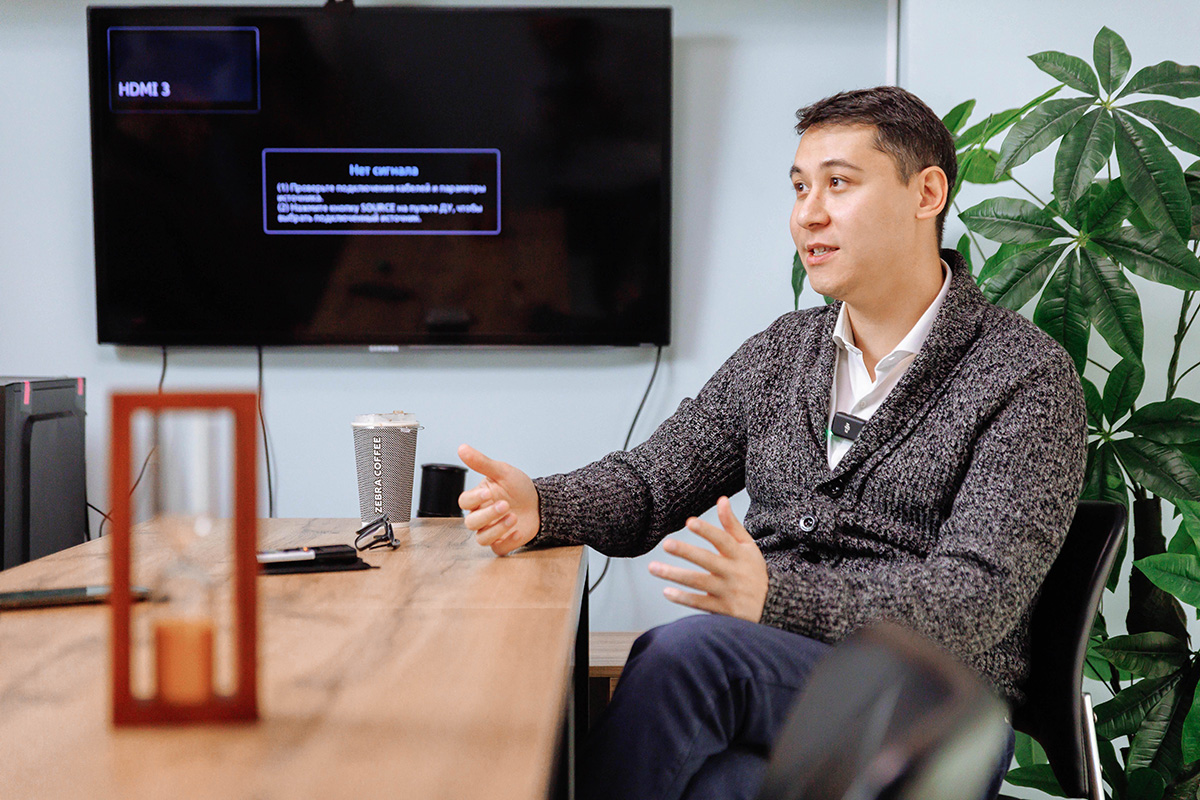
After a year and a substantial investment, we failed to develop even a minimum viable product (MVP). I consistently faced deceit. Initially, certain service providers accepted payment, offering only promises for a couple of months before disappearing altogether. I attempted to engage other individuals, but the cycle repeated. Consequently, I shut down the company and relocated to England to pursue a master’s degree.
“I had a great desire to develop non-cash transactions in Kazakhstan”
– When you returned to Kazakhstan, you chose to pursue a career in government services instead of continuing with a business venture. What influenced your decision to make this choice?
– Since my childhood, I’ve aspired to serve the community, perhaps influenced by my grandfather. Over his 40-year career, he held various managerial roles, including heading the factory that produced agricultural equipment for the entire USSR. His dedication has always been a source of inspiration for me. This is why I chose to explore government service as a way to contribute.

I was appointed as the chief expert at the Department of Macroeconomic Analysis and Forecasting within the Ministry of Economic Development and Trade of Kazakhstan (now known as the Ministry of the National Economy of Kazakhstan).
–You swiftly progressed from being the department manager within nine months to serving as the acting department director within an additional six months. How did you achieve such rapid advancement in your career?
– Let me begin from the start. During my time at KBTU, we had a South Korean instructor who shared insights about his country’s transition to non-cash transactions, back in 2007. His narrative deeply inspired me. Subsequently, I initiated a project aimed at implementing and advancing non-cash transactions in Kazakhstan, with the goal of reducing corruption levels. I meticulously outlined the concept and presented it to several government officials, receiving positive feedback. However, the project did not progress any further.
During my tenure in the public sector, this aspect became significant once more. Our ministry struggled for two years to gain approval for the action plan to combat the shadow economy. The project faced consistent rejection due to its impact on various vested interests.
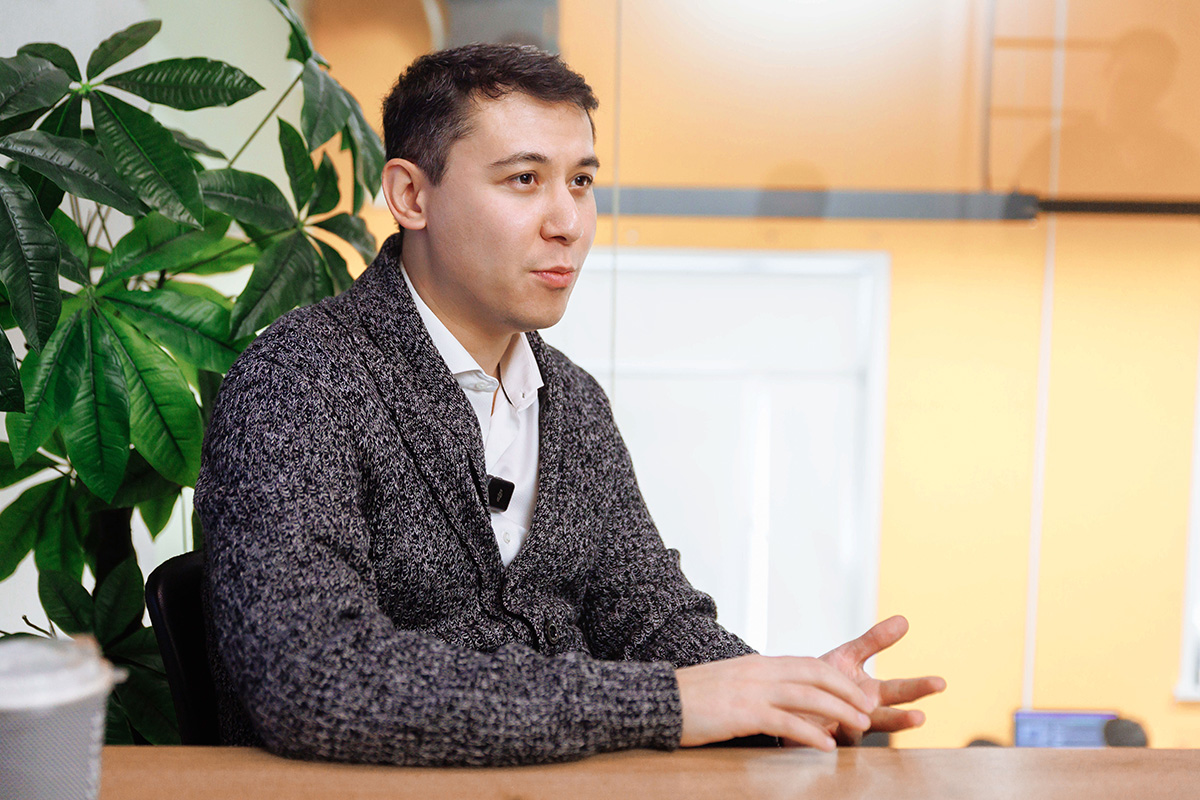
I refined the plan and approached the presidential administration, where one of the public officials to whom I had presented my project in 2007 was based. I outlined the situation and sought assistance. With his support, we convened meetings with the heads of nearly all state authorities, totaling seven sessions. Eventually, the plan received approval. As a result, all retail outlets in our country began to adopt POS terminals for non-cash transactions.
Subsequently, I was designated as the department head, followed by assuming the role of acting director for the largest department within the ministry. Remarkably, at the age of 25, I believe I was the youngest individual to hold such a position in Kazakhstan.
– Given your prosperous career, what prompted your decision to depart from the state service?
– Upon the arrival of the new department head, I was designated as the deputy director. Subsequently, I found myself gradually distanced from all tasks. Consequently, I made the choice to resign, as I cannot remain without work.
Almost immediately, I received an offer to assume the position of department director for development at the Khabar media holding. The challenge was to secure government approval for the strategy, which had faced repeated rejection. It took me a year to revamp and gain approval for the new strategy. Subsequently, with a reduced workload, I found myself becoming increasingly bored.
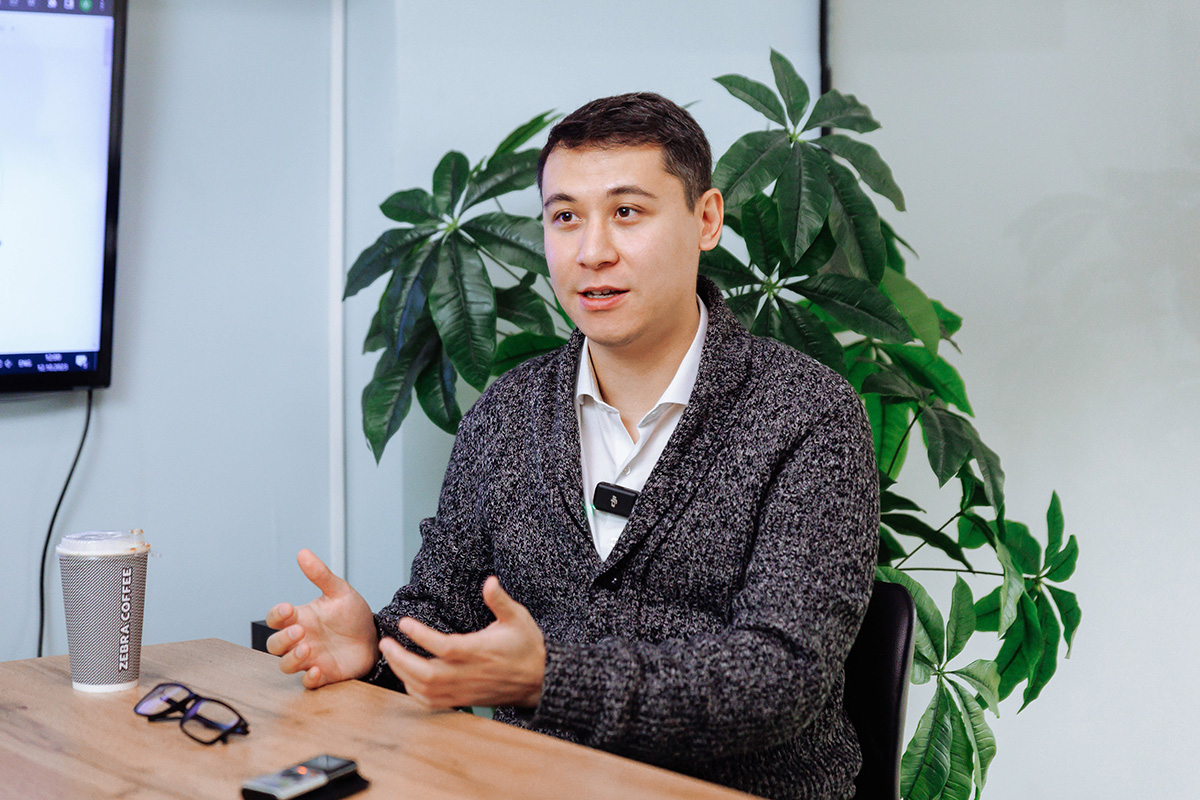
I concluded that the moment was opportune for me to reenter the business sphere. This led to the establishment of CDM Production. Our work encompassed producing shows for various TV channels, creating cartoons, and executing diverse marketing projects. This venture proved to be highly lucrative, and I believe it stood out as one of the most profitable media companies in the country.
“Even your grandma can effortlessly sign a contract within a few clicks”
– When did the concept for TrustMe first come to your mind?
– Once the accounts were sufficiently funded, I resolved to make another foray into the realm of IT. I recognized the potential for serving the community through technology, thus sparking the inception of the TrustMe concept. This ecosystem aimed to enable individuals and businesses to provide sincere feedback about their interactions with various organizations. After conducting custdev and confirming the hypothesis, we initiated the product development phase.
– Were you concurrently involved with CDM Production?
–Not just that. During that period, I managed four businesses. In addition to CDM Production and TrustMe, I also oversaw ADmasters (in the marketing sector) and Digital Academy (focused on IT training).
I was overly optimistic, believing that I could effectively oversee everything by delegating some responsibilities to hired executives. However, this proved to be untrue. Consequently, I made the decision to relinquish all other ventures and concentrate solely on TrustMe.
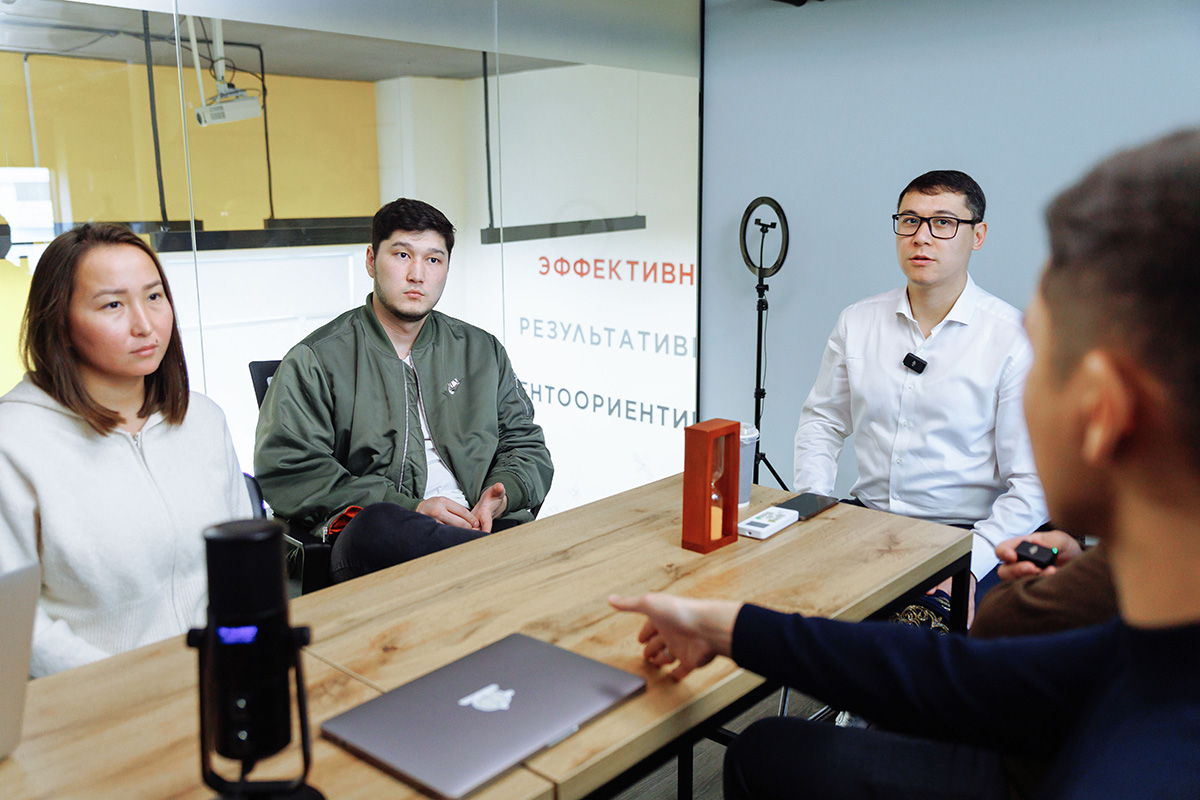
– Weren’t you apprehensive about making such a decision? Investing substantial funds and efforts into a startup can potentially yield nothing but a negative experience.
–I hadn’t anticipated a negative outcome. However, I must confess that I hadn’t experienced financial hardship to that extent since then and up until now. I personally invested approximately $200,000 into TrustMe. By the summer of 2021, my reserves were nearly depleted, and we hadn’t generated any revenue yet. I began seeking investments but encountered rejections. Perhaps it was during this period that the fear of the unknown first surfaced. I grappled with internal anxiety that took a toll on my spirits for three months.
However, after turning to God, I realized that there was no need for worry. I made the decision to take action. I recorded a video, appealing to 20 of my closest acquaintances to believe in me and my projects, and sent it to them. Within five days, I successfully secured investments amounting to $100,000. With these funds, I was able to cover salaries and continue progressing forward.
– Previously, you mentioned that TrustMe wasn’t in high demand, prompting the development of new services. Alongside TrustContract, three additional products were introduced: TrustInfo (providing information about individuals, locations, and businesses), TrustBusiness (offering QR menus and questionnaires), and TrustPlaces (facilitating venue searches). How are these initiatives progressing at present?
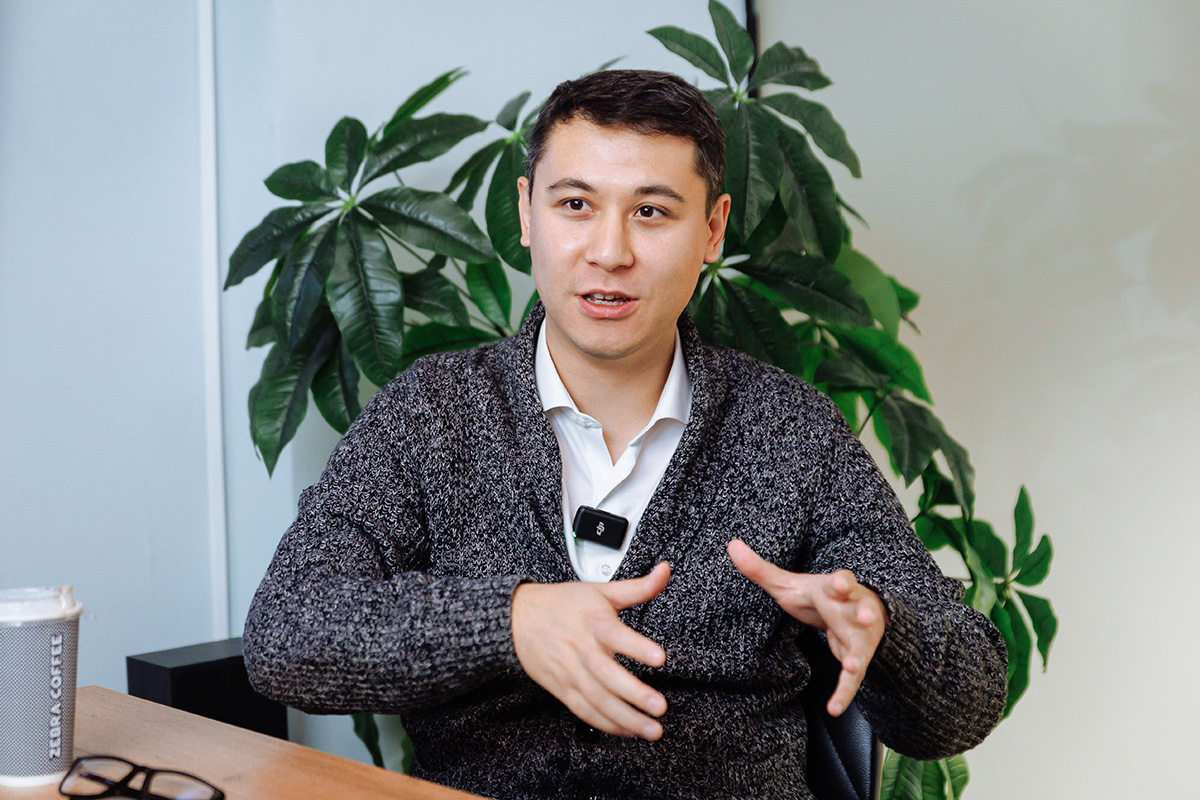
–We eventually discontinued those services. Although these offerings were experiencing favorable growth and generating sales, the cost of acquiring each client was prohibitively high, resulting in imbalanced unit economics. However, we recognized their significant potential. It was at that moment when we understood that concentrating on TrustContract could yield far greater achievements. This project has the potential to reach a global scale.
– What makes you so confident about the success of TrustContract?
– This product is designed to be extremely user-friendly. We often emphasize that even your grandma could effortlessly sign any contract in just a few clicks, taking no more than 90 seconds. All that’s required is a phone to receive the SMS approval. Users can upload the document template into the system or even a photo of the contract. The platform will then process it and generate the appropriate form to be completed and signed via SMS, thereby providing legal status to the transaction.
– Is it possible to modify the data after the contract has been signed?
– Since everything is stored on the blockchain, any attempt to make alterations will lead to the contract being rendered void, effectively nullifying it.
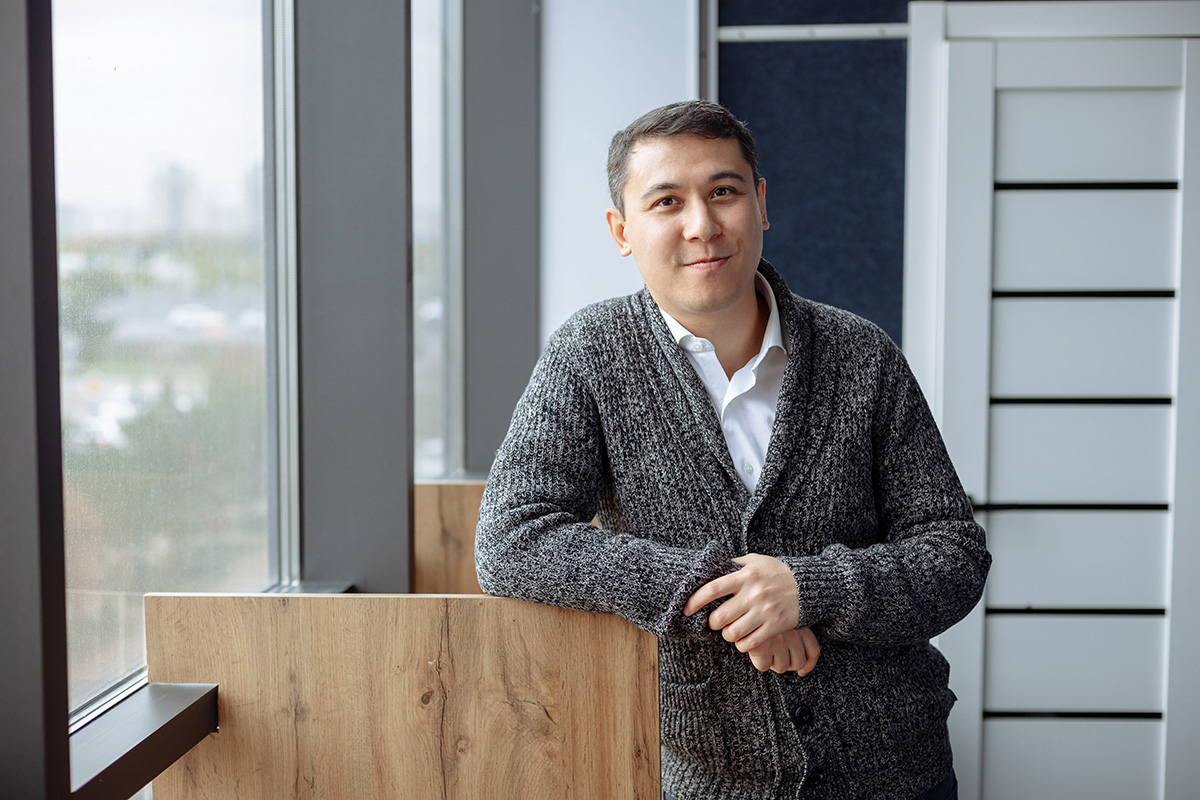
Furthermore, the platform allows for the establishment of specific parameters for each contract. For instance, in an investment contract, a minimum amount of $50,000 can be designated. If an individual attempts to enter an amount below this threshold, the system will prevent them from signing it. This functionality is programmable, enabling the implementation of various conditions as needed.
“TrustContract has facilitated the conclusion of over 100,000 contracts to date”
– Who constitutes your main clientele?
– Our primary clients consist of small and medium-sized businesses spanning various sectors such as tourism, automotive transportation, trade, HoReCa, and more. While large corporations also utilize our services, they often require tailored solutions. Currently, we are in discussions with some of these enterprises.
The market is extensive, with Kazakhstan alone hosting 1.6 million private entrepreneurs and 600,000 companies. This equates to over 2 million potential clients.
– How many of them are currently utilizing TrustContract?
– Presently, we have around 700 clients. On average, approximately 200 companies utilize our platform for document signing daily. In total, TrustContract has facilitated over 100,000 contract conclusions. Our growth rate is rapid. In July, we processed 18,000 contracts, followed by 23,000 in August, and nearly 39,000 in September.

Our revenue is generated through subscription plans, with costs varying based on the number of signatures. The starting fee is 12.8 thousand tenge per month for 50 signatures.
– In a prior interview, you stated your aim to become self-financing by the end of Autumn 2023. Have you succeeded in reaching this goal?
– We surpassed our initial projections. In August, our earnings amounted to 19 million tenge, with a historical cost of 8 million tenge to sustain the system. We don’t retain profits and investments in our accounts; instead, we allocate them for further expansion and advancement. Our primary focus now is to accomplish our goal of becoming the first unicorn in Central Asia. I believe we will achieve this milestone by the end of 2025.
– To attain unicorn status, it is essential to tap into global markets, including those in South Eastern Asia or the MENA region…
– It’s not always the case. Notably, as per the financial models assessed by the expert from the venture fund Big Sky Capital, to achieve a valuation of $1 billion, we would require 85,000 clients, a target feasible within Kazakhstan. While this approach may take longer compared to expanding into new markets, our focus remains on scaling within our existing market.

We are in the process of setting up a company in Uzbekistan. The market potential is significant, with a population twice the size of Kazakhstan’s and a notable presence of small and medium-sized enterprises. Additionally, the legal framework in Uzbekistan allows for contract signing via SMS. The document templates and formats differ slightly from those in Kazakhstan.
We conducted market research on the demand in the UAE and Turkey and believe that our project can garner interest in these regions. We estimate that it will take 2 to 3 months to commence operations. Ultimately, our goal is to expand our project to one new country every month in the ideal future.
– That sounds ambitious. Will your project necessitate significant localization for each region, considering the differences in legislation and languages?
– Certainly. As a result, we aim to establish a distinct team for each country, comprising dedicated sales departments, account managers, and support teams. This approach makes the prospect of launching one new country each month feasible. However, it does require substantial financial resources. At present, my focus lies in securing investments. We are on the verge of finalizing a round of $500,000 from business angels.
This capital will sustain us for about six months. With this support, our goal is to launch operations in Uzbekistan and Turkey, aiming to achieve a monthly recurring revenue (MRR) of $200,000 within 3-4 months. Subsequently, we will prepare for the next round of funding from venture capital firms, aiming for an amount of $30 million.
– What is the current valuation of the project?
– Recent investors have entered at a valuation of $15 million. However, I am confident that we can double this valuation in the near future. Expanding into new countries will lead to a significant influx of new users, thereby driving an increase in revenue. Nevertheless, the most crucial aspect is TrustContract’s tremendous potential for development and additional monetization. Several of our clients have requested the addition of an acquiring feature, enabling payments to be made on the platform immediately after contract signing. Furthermore, there has been a demand for contract insurance, with insurance companies expressing interest in offering their services through our platform.
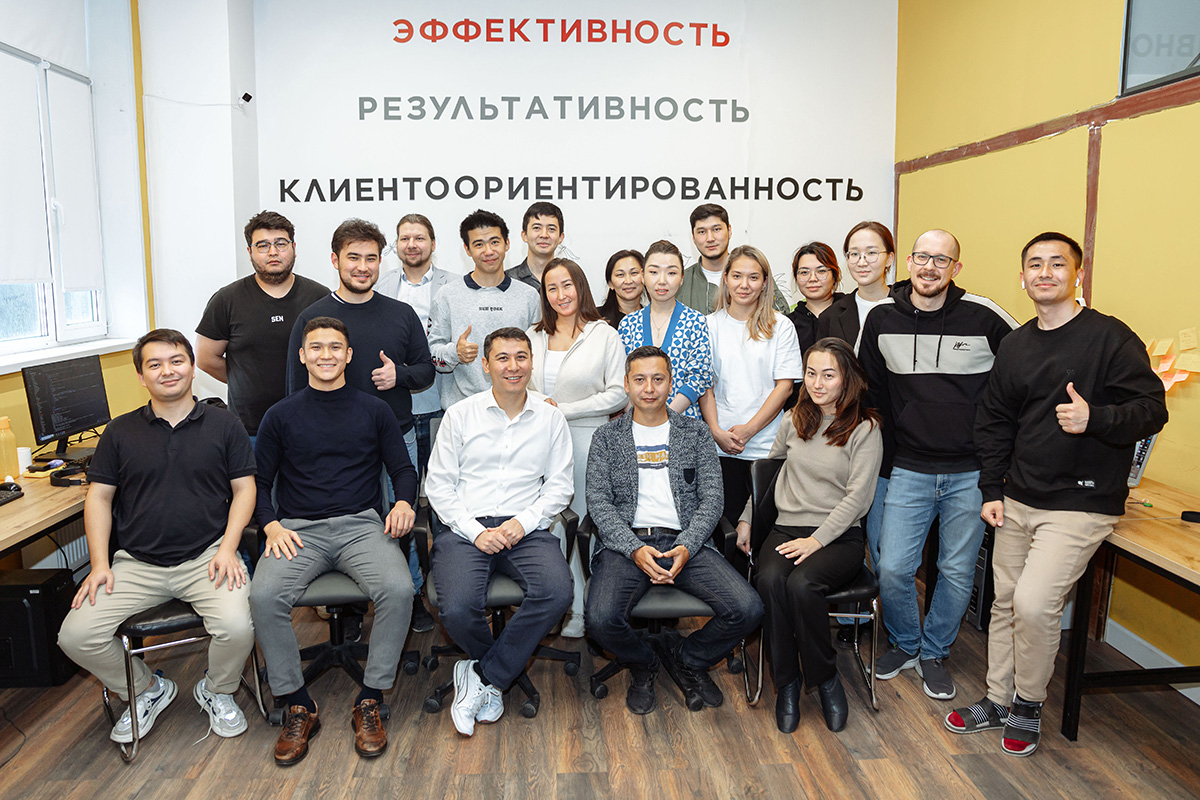
TrustMe Team
Moreover, a number of prominent Kazakhstan-based companies have expressed interest in acquiring our platform. This underlines our inherent value. When you possess extensive Big Data, you naturally pique the interest of potential acquirers, while simultaneously gaining various avenues for further product development.
https://digitalbusiness.kz/en/2023-11-07/startup-that-facilitates-online-contract-signing-via-sms/
Following these experiences, he made his way back to the IT sector and initiated the TrustMe project, a trust-based ecosystem featuring a range of products. The most renowned among them is TrustContract, an online service for contract signing via SMS. During an interview with Digital Business and Astana Hub for “100 Startup Stories of Kazakhstan”, Chingiz shared insights about his prior work in the Ministry of National Economy of Kazakhstan, the rationale behind declining some lucrative business opportunities in favor of IT, and his vision for TrustContract to become Central Asia’s first unicorn.
“During my time as a student, I was making several thousand dollars each month”
– You began your entrepreneurial journey while still in school. What activities were you engaged in at that time?
– In the early 2000s, I used to record music on CDs. Back then, computers and Internet access were scarce. My father purchased a PC to work on his doctoral thesis and I began downloading music from different websites, which I then burned onto CD-RWs and sold for 250 tenge each. The demand was significant.
– Was your choice to initiate a business during your university years intentional?
– It was more a series of circumstances. When I relocated from Kyzylorda to Almaty, my parents purchased a car for me. One day, my uncle requested that I go to the market to purchase some building materials. This continued to happen repeatedly, and that’s how it all began.

Consequently, I assumed responsibility for supplying linoleum, wallpapers, sports equipment, interactive boards, school boards, and more. While still a student, I managed transactions worth several million dollars per year.
– How much were you earning during that period?
– It varied based on my efficiency. The arrangement I had with my uncle operated as follows: he supplied me with a list of necessary materials along with their estimated costs, and my responsibility was to source them at a lower price without compromising quality. Occasionally, I managed to negotiate a 30% discount with the sellers from the initial price. The margin was my profit. Consequently, I could earn several thousand dollars within a month, which was a significant sum at that time.
– What was the project you attempted to launch in the IT industry back in 2007?
– My aim was to establish a marketplace for building materials featuring real-time prices. This idea stemmed from the challenges I faced during my time in procurement. Often, when contacting a seller, it would transpire that either the item was unavailable, or it cost 20% more than what was listed in the catalog.
I leased an office in close proximity to the Green market and employed individuals who would visit various markets to gather prices for a diverse array of building materials. However, we encountered issues with setting up the necessary technical infrastructure.

After a year and a substantial investment, we failed to develop even a minimum viable product (MVP). I consistently faced deceit. Initially, certain service providers accepted payment, offering only promises for a couple of months before disappearing altogether. I attempted to engage other individuals, but the cycle repeated. Consequently, I shut down the company and relocated to England to pursue a master’s degree.
“I had a great desire to develop non-cash transactions in Kazakhstan”
– When you returned to Kazakhstan, you chose to pursue a career in government services instead of continuing with a business venture. What influenced your decision to make this choice?
– Since my childhood, I’ve aspired to serve the community, perhaps influenced by my grandfather. Over his 40-year career, he held various managerial roles, including heading the factory that produced agricultural equipment for the entire USSR. His dedication has always been a source of inspiration for me. This is why I chose to explore government service as a way to contribute.

I was appointed as the chief expert at the Department of Macroeconomic Analysis and Forecasting within the Ministry of Economic Development and Trade of Kazakhstan (now known as the Ministry of the National Economy of Kazakhstan).
–You swiftly progressed from being the department manager within nine months to serving as the acting department director within an additional six months. How did you achieve such rapid advancement in your career?
– Let me begin from the start. During my time at KBTU, we had a South Korean instructor who shared insights about his country’s transition to non-cash transactions, back in 2007. His narrative deeply inspired me. Subsequently, I initiated a project aimed at implementing and advancing non-cash transactions in Kazakhstan, with the goal of reducing corruption levels. I meticulously outlined the concept and presented it to several government officials, receiving positive feedback. However, the project did not progress any further.
During my tenure in the public sector, this aspect became significant once more. Our ministry struggled for two years to gain approval for the action plan to combat the shadow economy. The project faced consistent rejection due to its impact on various vested interests.

I refined the plan and approached the presidential administration, where one of the public officials to whom I had presented my project in 2007 was based. I outlined the situation and sought assistance. With his support, we convened meetings with the heads of nearly all state authorities, totaling seven sessions. Eventually, the plan received approval. As a result, all retail outlets in our country began to adopt POS terminals for non-cash transactions.
Subsequently, I was designated as the department head, followed by assuming the role of acting director for the largest department within the ministry. Remarkably, at the age of 25, I believe I was the youngest individual to hold such a position in Kazakhstan.
– Given your prosperous career, what prompted your decision to depart from the state service?
– Upon the arrival of the new department head, I was designated as the deputy director. Subsequently, I found myself gradually distanced from all tasks. Consequently, I made the choice to resign, as I cannot remain without work.
Almost immediately, I received an offer to assume the position of department director for development at the Khabar media holding. The challenge was to secure government approval for the strategy, which had faced repeated rejection. It took me a year to revamp and gain approval for the new strategy. Subsequently, with a reduced workload, I found myself becoming increasingly bored.

I concluded that the moment was opportune for me to reenter the business sphere. This led to the establishment of CDM Production. Our work encompassed producing shows for various TV channels, creating cartoons, and executing diverse marketing projects. This venture proved to be highly lucrative, and I believe it stood out as one of the most profitable media companies in the country.
“Even your grandma can effortlessly sign a contract within a few clicks”
– When did the concept for TrustMe first come to your mind?
– Once the accounts were sufficiently funded, I resolved to make another foray into the realm of IT. I recognized the potential for serving the community through technology, thus sparking the inception of the TrustMe concept. This ecosystem aimed to enable individuals and businesses to provide sincere feedback about their interactions with various organizations. After conducting custdev and confirming the hypothesis, we initiated the product development phase.
– Were you concurrently involved with CDM Production?
–Not just that. During that period, I managed four businesses. In addition to CDM Production and TrustMe, I also oversaw ADmasters (in the marketing sector) and Digital Academy (focused on IT training).
I was overly optimistic, believing that I could effectively oversee everything by delegating some responsibilities to hired executives. However, this proved to be untrue. Consequently, I made the decision to relinquish all other ventures and concentrate solely on TrustMe.

– Weren’t you apprehensive about making such a decision? Investing substantial funds and efforts into a startup can potentially yield nothing but a negative experience.
–I hadn’t anticipated a negative outcome. However, I must confess that I hadn’t experienced financial hardship to that extent since then and up until now. I personally invested approximately $200,000 into TrustMe. By the summer of 2021, my reserves were nearly depleted, and we hadn’t generated any revenue yet. I began seeking investments but encountered rejections. Perhaps it was during this period that the fear of the unknown first surfaced. I grappled with internal anxiety that took a toll on my spirits for three months.
However, after turning to God, I realized that there was no need for worry. I made the decision to take action. I recorded a video, appealing to 20 of my closest acquaintances to believe in me and my projects, and sent it to them. Within five days, I successfully secured investments amounting to $100,000. With these funds, I was able to cover salaries and continue progressing forward.
– Previously, you mentioned that TrustMe wasn’t in high demand, prompting the development of new services. Alongside TrustContract, three additional products were introduced: TrustInfo (providing information about individuals, locations, and businesses), TrustBusiness (offering QR menus and questionnaires), and TrustPlaces (facilitating venue searches). How are these initiatives progressing at present?

–We eventually discontinued those services. Although these offerings were experiencing favorable growth and generating sales, the cost of acquiring each client was prohibitively high, resulting in imbalanced unit economics. However, we recognized their significant potential. It was at that moment when we understood that concentrating on TrustContract could yield far greater achievements. This project has the potential to reach a global scale.
– What makes you so confident about the success of TrustContract?
– This product is designed to be extremely user-friendly. We often emphasize that even your grandma could effortlessly sign any contract in just a few clicks, taking no more than 90 seconds. All that’s required is a phone to receive the SMS approval. Users can upload the document template into the system or even a photo of the contract. The platform will then process it and generate the appropriate form to be completed and signed via SMS, thereby providing legal status to the transaction.
– Is it possible to modify the data after the contract has been signed?
– Since everything is stored on the blockchain, any attempt to make alterations will lead to the contract being rendered void, effectively nullifying it.

Furthermore, the platform allows for the establishment of specific parameters for each contract. For instance, in an investment contract, a minimum amount of $50,000 can be designated. If an individual attempts to enter an amount below this threshold, the system will prevent them from signing it. This functionality is programmable, enabling the implementation of various conditions as needed.
“TrustContract has facilitated the conclusion of over 100,000 contracts to date”
– Who constitutes your main clientele?
– Our primary clients consist of small and medium-sized businesses spanning various sectors such as tourism, automotive transportation, trade, HoReCa, and more. While large corporations also utilize our services, they often require tailored solutions. Currently, we are in discussions with some of these enterprises.
The market is extensive, with Kazakhstan alone hosting 1.6 million private entrepreneurs and 600,000 companies. This equates to over 2 million potential clients.
– How many of them are currently utilizing TrustContract?
– Presently, we have around 700 clients. On average, approximately 200 companies utilize our platform for document signing daily. In total, TrustContract has facilitated over 100,000 contract conclusions. Our growth rate is rapid. In July, we processed 18,000 contracts, followed by 23,000 in August, and nearly 39,000 in September.

Our revenue is generated through subscription plans, with costs varying based on the number of signatures. The starting fee is 12.8 thousand tenge per month for 50 signatures.
– In a prior interview, you stated your aim to become self-financing by the end of Autumn 2023. Have you succeeded in reaching this goal?
– We surpassed our initial projections. In August, our earnings amounted to 19 million tenge, with a historical cost of 8 million tenge to sustain the system. We don’t retain profits and investments in our accounts; instead, we allocate them for further expansion and advancement. Our primary focus now is to accomplish our goal of becoming the first unicorn in Central Asia. I believe we will achieve this milestone by the end of 2025.
– To attain unicorn status, it is essential to tap into global markets, including those in South Eastern Asia or the MENA region…
– It’s not always the case. Notably, as per the financial models assessed by the expert from the venture fund Big Sky Capital, to achieve a valuation of $1 billion, we would require 85,000 clients, a target feasible within Kazakhstan. While this approach may take longer compared to expanding into new markets, our focus remains on scaling within our existing market.

We are in the process of setting up a company in Uzbekistan. The market potential is significant, with a population twice the size of Kazakhstan’s and a notable presence of small and medium-sized enterprises. Additionally, the legal framework in Uzbekistan allows for contract signing via SMS. The document templates and formats differ slightly from those in Kazakhstan.
We conducted market research on the demand in the UAE and Turkey and believe that our project can garner interest in these regions. We estimate that it will take 2 to 3 months to commence operations. Ultimately, our goal is to expand our project to one new country every month in the ideal future.
– That sounds ambitious. Will your project necessitate significant localization for each region, considering the differences in legislation and languages?
– Certainly. As a result, we aim to establish a distinct team for each country, comprising dedicated sales departments, account managers, and support teams. This approach makes the prospect of launching one new country each month feasible. However, it does require substantial financial resources. At present, my focus lies in securing investments. We are on the verge of finalizing a round of $500,000 from business angels.
This capital will sustain us for about six months. With this support, our goal is to launch operations in Uzbekistan and Turkey, aiming to achieve a monthly recurring revenue (MRR) of $200,000 within 3-4 months. Subsequently, we will prepare for the next round of funding from venture capital firms, aiming for an amount of $30 million.
– What is the current valuation of the project?
– Recent investors have entered at a valuation of $15 million. However, I am confident that we can double this valuation in the near future. Expanding into new countries will lead to a significant influx of new users, thereby driving an increase in revenue. Nevertheless, the most crucial aspect is TrustContract’s tremendous potential for development and additional monetization. Several of our clients have requested the addition of an acquiring feature, enabling payments to be made on the platform immediately after contract signing. Furthermore, there has been a demand for contract insurance, with insurance companies expressing interest in offering their services through our platform.

TrustMe Team
Moreover, a number of prominent Kazakhstan-based companies have expressed interest in acquiring our platform. This underlines our inherent value. When you possess extensive Big Data, you naturally pique the interest of potential acquirers, while simultaneously gaining various avenues for further product development.
https://digitalbusiness.kz/en/2023-11-07/startup-that-facilitates-online-contract-signing-via-sms/








